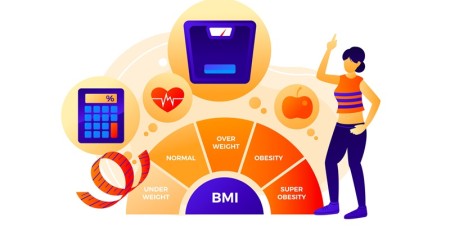The Best Approach to Helping Patients with Diabetes and Obesity: Exercise or Medication?
Determining the most effective way to help patients with diabetes, heart problems, and obesity lose weight and improve their health outcomes is crucial. Is exercise the answer, or are medications like glucagon-like peptide 1 (GLP-1) receptor agonists more effective? This was the central question at the “Battle of Experts” during the 2024 Diabetes Congress in Berlin.
Benefits of Exercise
Dr. Christine Joisten, a general, sports, and nutrition physician at the Sports University in Cologne, Germany, emphasized the multifaceted benefits of exercise. She stated that exercise not only aids in weight loss but also enhances overall fitness, body composition, eating habits, cardiometabolic health, and quality of life.
Dr. Stephan Kress, a diabetologist at Vinzentius Hospital in Landau, Germany, highlighted a study by Pedersen et al., which showed that exercise positively affects 26 different conditions. These benefits extend beyond metabolic, cardiological, pneumological, and musculoskeletal diseases to neurological and psychiatric conditions. Kress mentioned that myokines, beneficial cytokines released by muscles during exercise, might play a significant role in these health improvements.
Exercise can also elevate mood in patients with depression and reduce inflammation in those with chronic inflammatory diseases. Even if HbA1c levels do not decrease significantly, many patients with diabetes can still benefit from regular physical activity.
Exercise “Snacks” and Daily Activity
Dr. Joisten explained that fat loss can be achieved through prolonged physical activity or short, intense sessions if followed by a period of not eating immediately afterward. The World Health Organization (WHO) recommends that “every step counts.” Activities like standing up, walking, climbing stairs, and other daily movements can motivate and benefit patients with obesity.
A recent meta-analysis showed that just 500 more steps per day could reduce cardiovascular mortality by 7%, and an additional 1,000 steps daily could lower overall mortality by 15%. Joisten suggested incorporating “exercise snacks” throughout the day to break up sedentary activities with short bursts of movement.
Kress agreed, recommending lower intensity, longer duration exercises like walking or jogging at a conversational pace. Fragmented exercise sessions, such as three 10-minute walks per day, can improve circulation and fitness while preventing lactic acid buildup.
Progression and Goals
Starting with moderate exercise and gradually increasing intensity or duration can significantly benefit health. For individuals under 60, 8,000-10,000 steps per day significantly reduce mortality, while for those over 60, 6,000-8,000 steps are sufficient. The WHO suggests adults aim for 150-300 minutes of exercise per week, including strength training twice weekly.
Comparing Exercise Regimens
A network meta-analysis compared various exercise regimens for overweight or obese individuals:
- Interval training: Very high intensity, 2-3 days per week, averaging 91 minutes per week.
- Strength training: 2-3 days per week, averaging 126 minutes per week.
- Continuous endurance training: Moderate intensity, 3-5 days per week, averaging 176 minutes per week.
- Combined training: 3-4 days per week, averaging 187 minutes per week.
- Hybrid training: High intensity activities like dancing or jumping rope, 2-3 days per week, averaging 128 minutes per week.
Participants in the combined training group saw the best improvements in body composition, blood lipid levels, blood sugar control, blood pressure, and cardiorespiratory fitness.
Medical Checkups Before Starting Exercise
Patients who are new to exercise or have cardiac-respiratory or orthopedic conditions should undergo a medical checkup before starting a new exercise regimen. A stationary bicycle test at a primary care physician’s office is often sufficient, but those with higher athletic goals might need to consult a sports physician or cardiologist.
Effectiveness of Medications
Dr. Matthias Blüher, an endocrinologist and diabetologist at the University Hospital Leipzig, presented evidence supporting the effectiveness of medications like liraglutide for weight loss. A study by Lundgren et al. showed that patients treated with liraglutide lost more weight than those who engaged in moderate to intensive physical activity. However, the LOOK-AHEAD study found that lifestyle programs involving exercise and dietary changes did not produce long-term cardiovascular benefits, as patients eventually regained the weight.
The SELECT study found that semaglutide significantly reduced cardiovascular events in patients with cardiovascular conditions and obesity over nearly three years compared to a placebo. Additionally, semaglutide delayed the onset of diabetes in patients with prediabetes.
Combination Therapy
Both Blüher and Joisten agreed that combining exercise with incretin-based medications yields the best results for weight loss and blood sugar control. For instance, in the Lundgren study, participants who combined liraglutide with exercise lost an average of 9.5 kg and showed significant improvements in HbA1c levels, insulin sensitivity, and cardiorespiratory fitness.
The combination of exercise and medication appears to provide the most comprehensive health benefits for patients with diabetes, heart problems, and obesity. Regular physical activity, even in small amounts, significantly impacts overall health, while medications can enhance weight loss and improve metabolic control. Patients should consult their healthcare providers to determine the best approach tailored to their individual needs and conditions.











